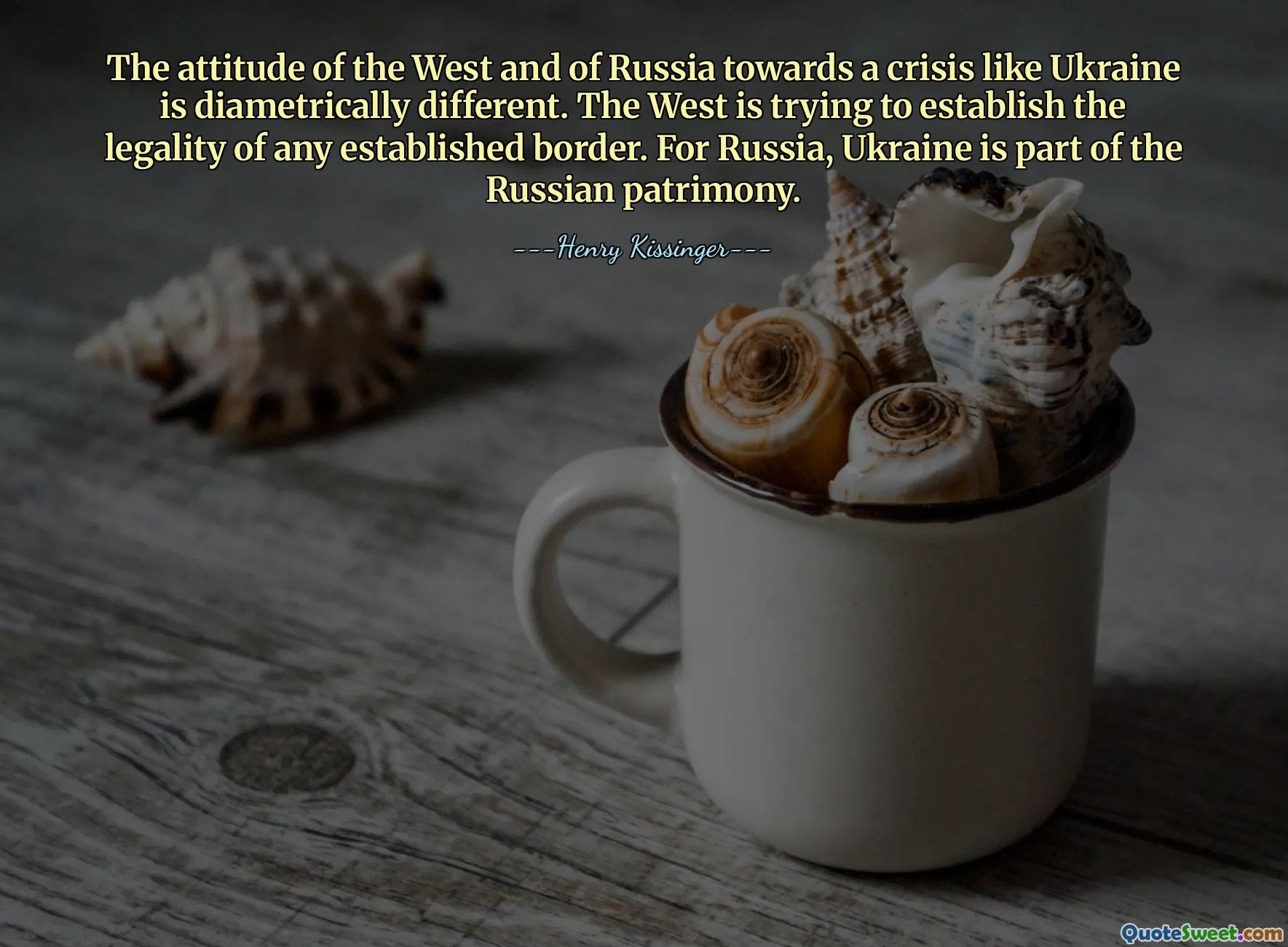
The attitude of the West and of Russia towards a crisis like Ukraine is diametrically different. The West is trying to establish the legality of any established border. For Russia, Ukraine is part of the Russian patrimony.
This quote eloquently captures the fundamental ideological and geopolitical rift that has long influenced the dynamics between the West and Russia, particularly regarding international conflicts such as the Ukraine crisis. The West's focus on establishing the legality of established borders exemplifies its adherence to international law, sovereignty, and the principles of territorial integrity. It reflects a desire to uphold a rules-based international order where borders are respected regardless of historical claims or ethnic ties.
Conversely, the Russian perspective as described in the quote is deeply rooted in historical narratives and national identity, interpreting Ukraine not just as a neighboring state but as an intrinsic part of Russia's historical patrimony. This viewpoint underscores how history, culture, and perceived shared heritage shape Russia's foreign policy decisions and its approach to territorial claims.
The dichotomy presented, "diametrically different attitudes," is pivotal because it drives the complexities and challenges in resolving such crises. Where the West emphasizes legality and sovereignty, Russia points to historical and cultural legitimacy. This clash illustrates why diplomacy and conflict resolution in such contexts are profoundly complicated; they do not merely involve contemporary political negotiations but also divergent worldviews about identity, legitimacy, and history.
Understanding these contrasting perspectives is essential not only for analyzing the Ukraine crisis but also for any future international conflicts where historic ties intersect with modern diplomacy. It challenges policymakers and scholars alike to reconcile legal frameworks with the deeply embedded historic and cultural sentiments that shape national interests and identities.








